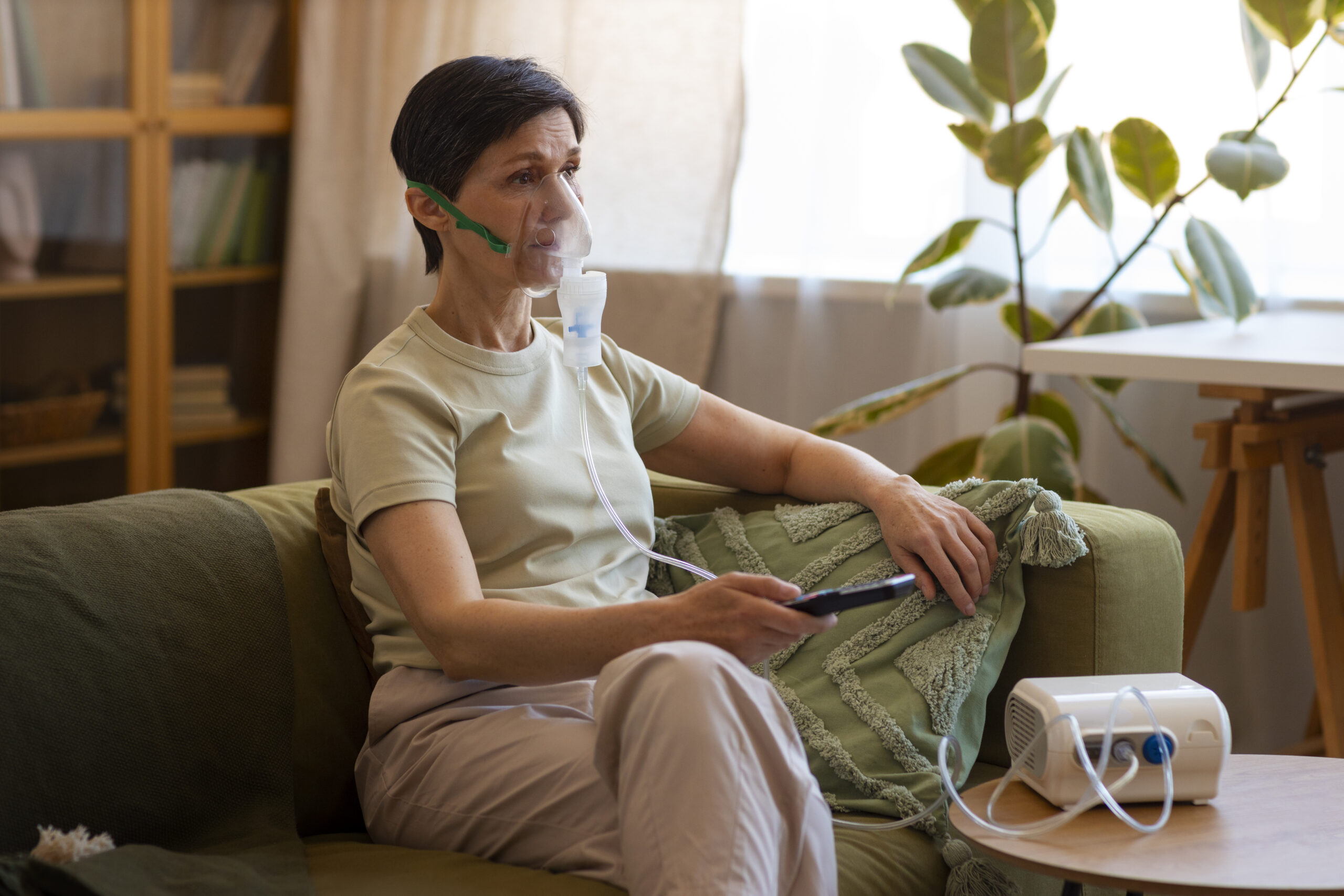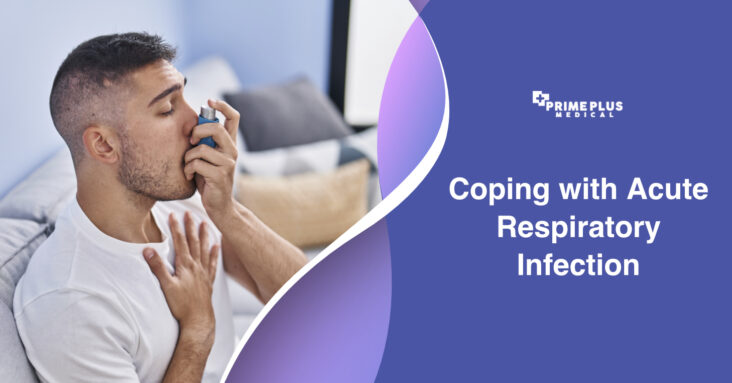Acute respiratory infection (ARI) is a common illness affecting people of all ages, especially children under five. ARI can cause a cough and short, rapid breathing, which can be dangerous, primarily if other health conditions exist.
ARI is an essential source of morbidity and mortality worldwide, and patients at extreme ages or with pre-existing cardiopulmonary disease or immunosuppression are at increased risk. Here’s the lowdown on these symptoms, what causes them, and how to manage them. Let’s learn more!

What You Need to Know about Acute Respiratory Infection
ARI is a common health problem worldwide. In addition, ARI can also happen to anyone, which is why knowing this condition is very important. With a better understanding of ARI, you can take proactive steps to maintain your respiratory health.
Symptoms of Acute Respiratory Infection
ARI can affect either the upper or lower respiratory tract and can cause different symptoms depending on the type of infection. There are some common symptoms that ARI patients may experience, such as:
- Coughing
- Sneezing
- Nasal Congestion
- Runny Nose
- Fever
- Easy Fatigue
- Headache
- Throat Pain
- Bluish Skin
- Wheezing, and
- Enlarged Lymph Nodes.
The symptoms of URI usually last for one to two weeks and may resolve independently without specific treatment. However, in some cases, URI symptoms may last for more than two weeks, especially in children. Some ARI risk factors include age, health state, and environmental exposure.
read more article: Type 2 Diabetes in Children — Things All Parents Must Know
What Causes Acute Respiratory Infection
Here are some common causes of ARI:
- Viruses
Viruses are the leading cause of ARI, such as flu, SARS, and COVID-19. These viruses are spread through airborne droplets when an infected person coughs or sneezes.
- Bacteria
Bacteria can also cause ARI, such as pneumonia and bronchitis. These bacteria spread through airborne droplets or contact with an infected person.
- Environmental exposures
Exposure to cigarette smoke, air pollution, and chemicals can trigger ARI.
- Other risk factors
Some risk factors that may increase a person’s risk of developing ARI include age, state of health, and environmental exposure.
As for the mode of transmission of viruses or bacteria in respiratory tract infections, it can be through various contacts, such as:
- Inhalation of contaminated air
Viruses or bacteria can spread through airborne droplets when an infected person coughs or sneezes.
- Contact with body fluids
Viruses or bacteria can spread through contact with body fluids from a sick person, including blood, urine, and feces.
- Contact with non-sterile objects
Viruses or bacteria can spread through non-sterile objects, such as doorknobs, telephones, or tables.
- Eating contaminated food or water
Viruses or bacteria can spread through contaminated food or water.
- Coming into contact with saliva splashes
Viruses or bacteria can spread through droplets of saliva released by the person coughing or sneezing.
- Contact with contaminated objects
Viruses or bacteria can spread by touching contaminated objects or shaking hands with a patient.
And How to Treat This Infection?
If you want to recover from ARI, it can be treated in several ways, including:
- Get enough rest
Adequate rest can help the body to recover from infection.
- Drink plenty of water
Drinking plenty of water can help keep the body hydrated and help thin mucus.
- Take medications
Medications such as antipyretics, analgesics, and decongestants can help reduce the symptoms of ARI.
- Oxygen therapy
In more severe cases, oxygen therapy may help patients breathe more easily.
- Avoid smoking
Smoking can worsen ARI symptoms and slow down the healing process.
- Maintain hygiene
Maintaining personal and environmental hygiene can help prevent the spread of infection.
- Vaccination
Vaccinations can help prevent ARI infections caused by certain viruses, such as the flu.
In addition, WHO has provided a toolkit for clinicians working in acute care who manage adult and pediatric patients with ARIs, including severe pneumonia, acute respiratory distress syndrome, sepsis, and septic shock. The toolkit contains algorithms, checklists, and guidelines for diagnosis, treatment, and patient management.
You can prevent respiratory tract infections. by washing hands regularly, avoiding exposure to cigarette smoke, and maintaining endurance with a healthy lifestyle. If symptoms worsen or do not improve, contact your doctor immediately for proper treatment.
Ease Your Aches and Pains with Prime Plus Medical Clinic
So, understanding the symptoms, causes, and solutions for acute respiratory infection (ARIs) is crucial for maintaining respiratory health. ARIs pose a significant global health challenge, affecting individuals of all ages. By recognizing the symptoms, addressing the root causes, and adopting preventive measures, we can minimize the impact of ARIs and strive for healthier lives. Stay informed, stay healthy, and seek medical attention if symptoms worsen or persist—your well-being matters.
Prioritizing your respiratory health is no exception when you’re in Canggu, Bali. Visit Prime Plus Medical for a quick and proper Acute Respiratory Infection (ARI) examination – our team of doctors are knowledgeable professionals, and you can rest assured that they speak English to ensure your safety and well-being. Don’t wait – take control of your health today and stay ahead of ARI. Your health is our priority!

